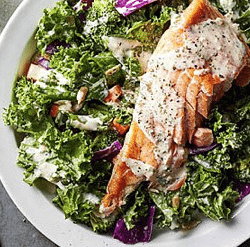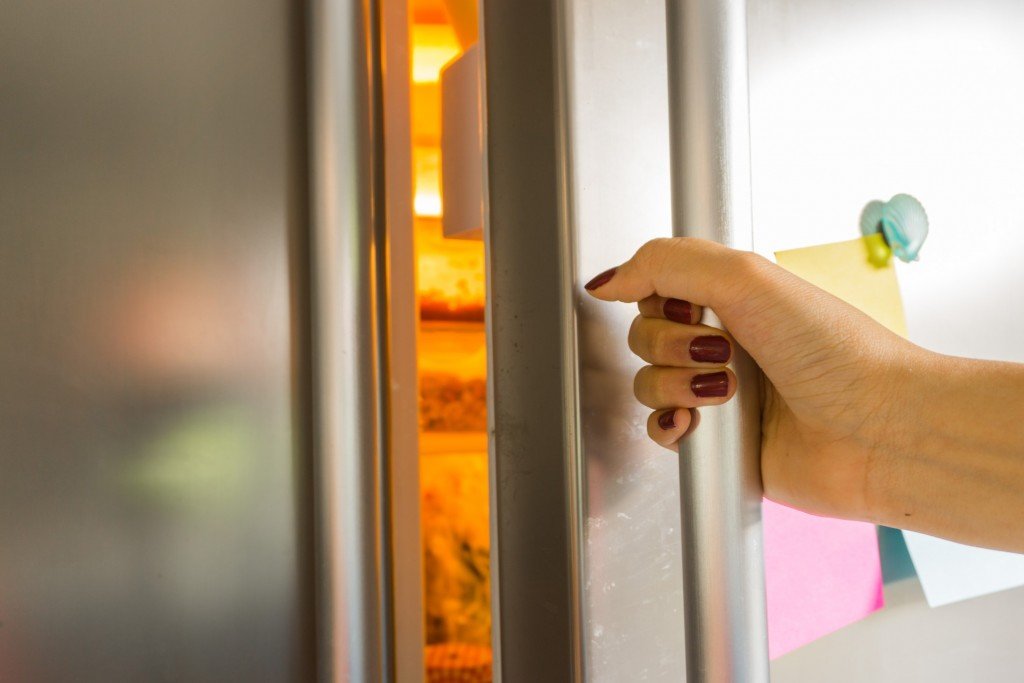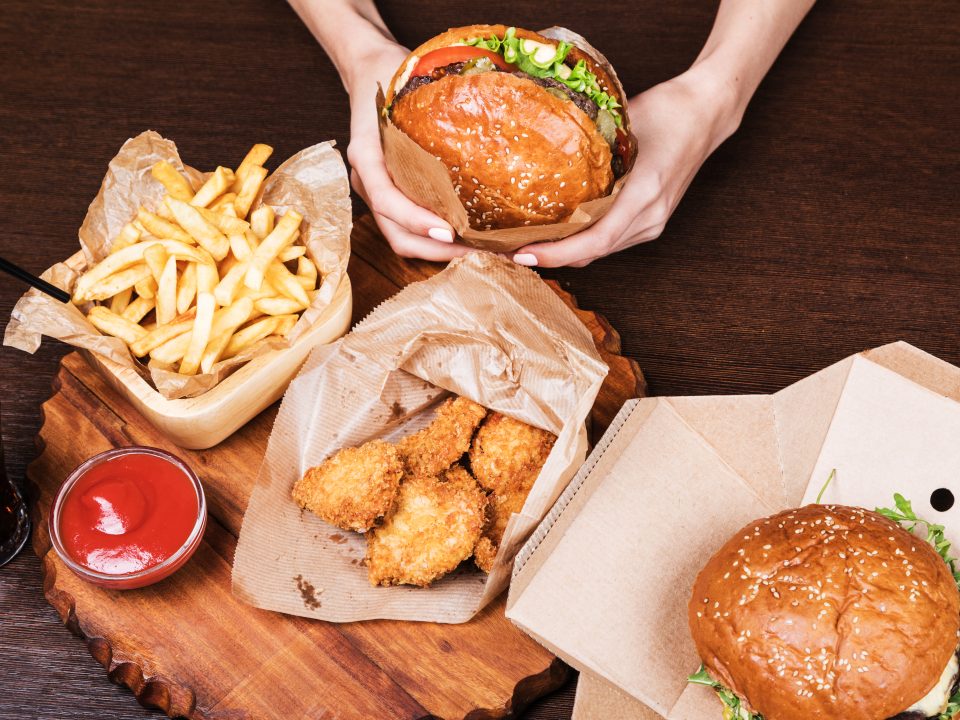
How to Avoid Tasty Temptations at Christmas
December 18, 2018
Super Food Salmon Salad With Garlic Dressing
September 30, 2022Many believe that successful weight loss must be 80 per cent diet and 20 per cent exercise, but here at OnTrack we know that isn’t always the case, and a lot of our guests’ weight loss journey has to start in the mind before the gym or the kitchen.
Emotional eating is a problem that many of our guests’ face, meaning that often they use food for comfort and as a stress relief rather than just eating at meal times.
As the name suggests, emotional eating often occurs as a result of a negative thought or feeling, like stress, anxiety, boredom or sadness. Food is used to make you feel satisfied or pick up your mood, however, it often has the opposite effect and can leave you feeling regretful or guilty.
Emotional hunger is not the same as physical hunger, although it manifests itself in the same way, which is why it can be easily confused. Emotional hunger comes on suddenly when you’re feeling low or overwhelmed as opposed to physical hunger which comes on gradually over time.
Am I an emotional eater?
Sometimes, people don’t even realise they’re an emotional eater but just see food as a safety blanket. There are several questions you should ask yourself to see if you identify as an emotion eater, including:
– Do you often eat when you’re not hungry?
– Do you turn to food to make you feel better?
– Do you feel like food is a safety blanket?
– Do you reward yourself with food?
If you’ve answered yes to the majority of questions, it’s likely that you have tendencies of an emotional eater.
What triggers emotional eating and how do I overcome it?
Identifying your emotional eating trigger is the best way to overcome the issue.
Boredom
This is probably one trigger of emotional eating that we all know all too well. When you’re bored making and eating food will occupy your hands, mouth and mind, and distract you from that feeling, it will help you feel like you’re doing something.
Solution
Eating isn’t going to keep you entertained for very long and there are lots of other things that you could do to elevate that feeling of boredom and keep your hands busy. Next time you feel yourself gravitating towards the fridge, ask yourself: am I really hungry? If the answer is no, why not take yourself out the house and away from the pull of the fridge or find something to do at home like a crossword. Exercise your mind!
Stress
In times of stress your body naturally reacts by producing the stress hormone cortisol. Cortisol is produced to boost energy so you can handle stress, but it also triggers cravings for salty, sweet, and fried foods meaning you turn to eating to ease your stress.
Solution
We know that it’s not possible to stay away from stress inducing situations and that often triggers will occur in the work place or at home but trying to minimise the stresses in your life is the best thing you could do. When stress can’t be avoided, harness that cortisol reaction and use the fight or flight response to combat the stress inducing task at hand rather than turning to food for comfort.
Habits
Throughout life, we tend to reward ourselves for doing or achieving something by having a treat which is more often than not pretty unhealthy. Whether it’s pizza, ice cream, or chocolate; we all feel that these treats can make us feel happier and better.
Solution
Habits can be hard to break, especially ones that we have had since childhood. Mindful eating is one way to be in more control of what you’re eating requiring you give your food your full attention, away from distractions. Practising this will help to break those habits in the long run.
Social Situations
A number of social scenarios revolve around eating, and while it’s fun to catch up with friends and family over a meal, we can often over-consume to enhance the situation and make us feel even better as eating releases the feel-good chemical, dopamine, to our brain.
Solution
Food is such an easy way to create pleasure, but there are many other things that you can do with your friends and family that spark the same amount of joy in your life. Try something different like taking a day trip, playing board games, or going a sport together. All of these are situations that also release dopamine without the need to overeat.
Fatigue
Feeling burned-out or exhausted? Food is often used to keep us feeling awake and focused when we are feeling tired of concentrating. Eating requires little concentration and can be an easy break to have from the screen at work or the task at hand.
Solution
If you need a break, eating isn’t the only thing that can distract you. Doing something very different from the task at hand could help, if you’ve been staring at a screen, walk away and have a chat with a colleague, or play a game. You’ll often find that moving around and exercise help to wake you up more than a snack or a cup of coffee.
If you feel that you need help understanding your triggers and overcoming emotional eating, we have seminars just for you at our beautiful Devonshire retreat. Find out more about the programme and how we would help here.






